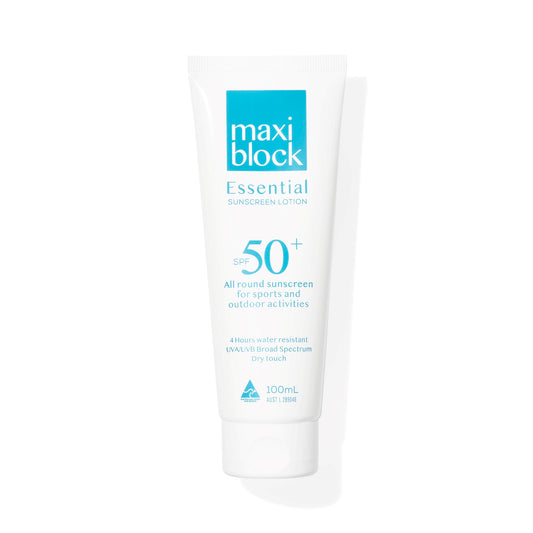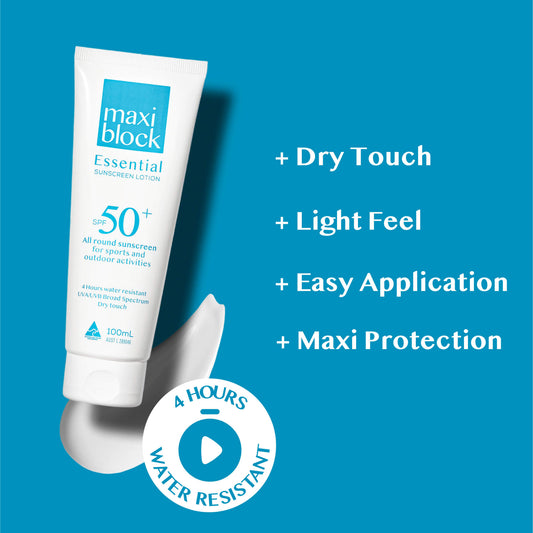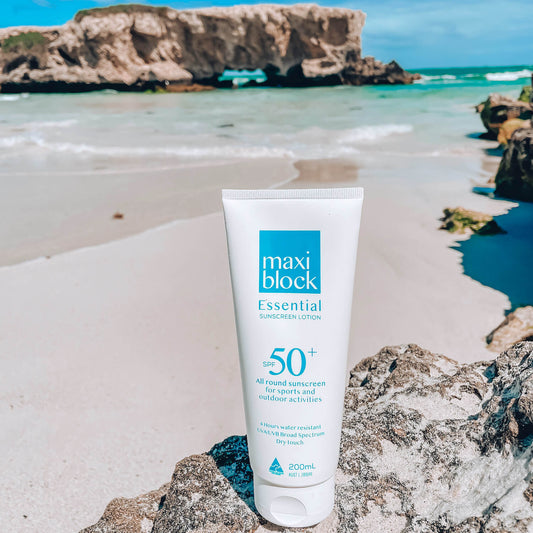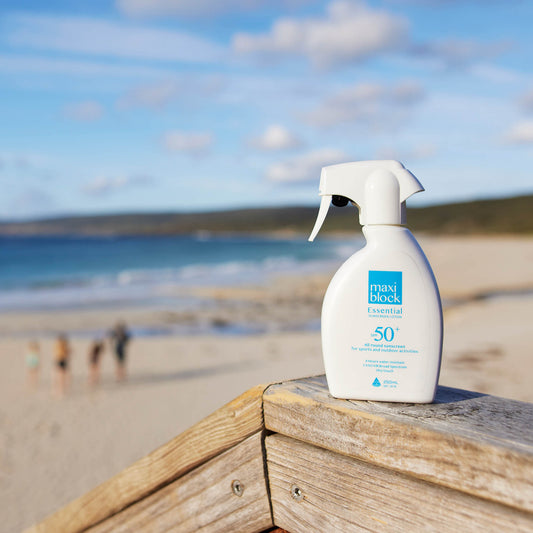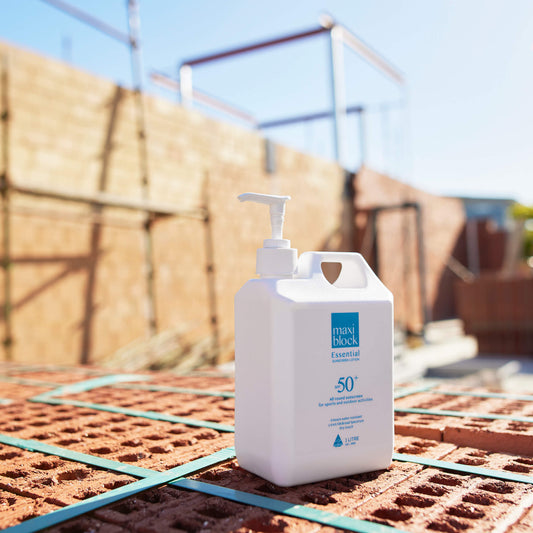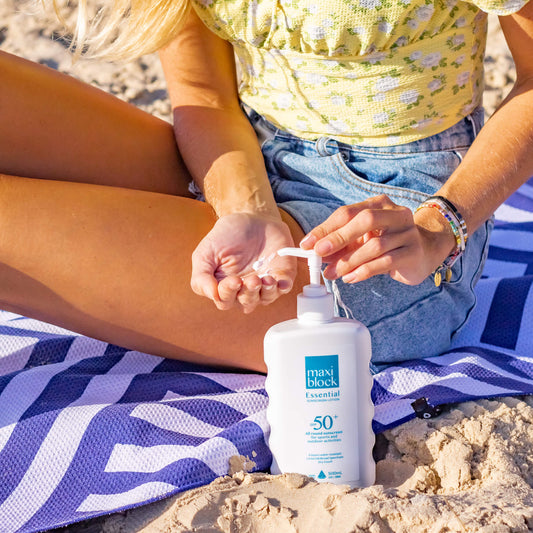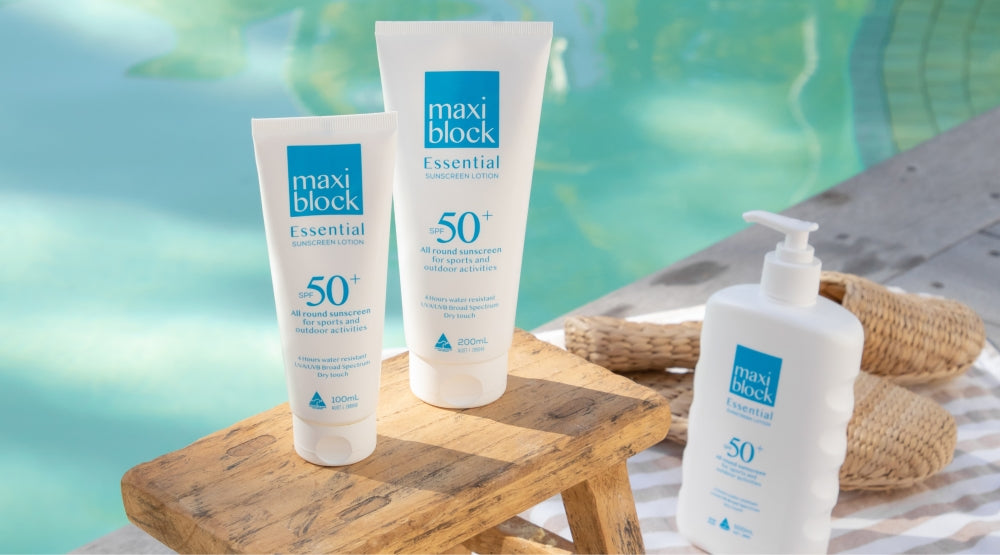
Maxiblock Essential
everyday sunscreen
Embrace the freedom of the great outdoors with our 4H water resistant sunscreen formula, providing long lasting protection against the harmful UVA and UVB rays of the Aussie sun. The lightweight, non-greasy application ensures you can focus on your active lifestyle, without compromising comfort. For When It Matters.
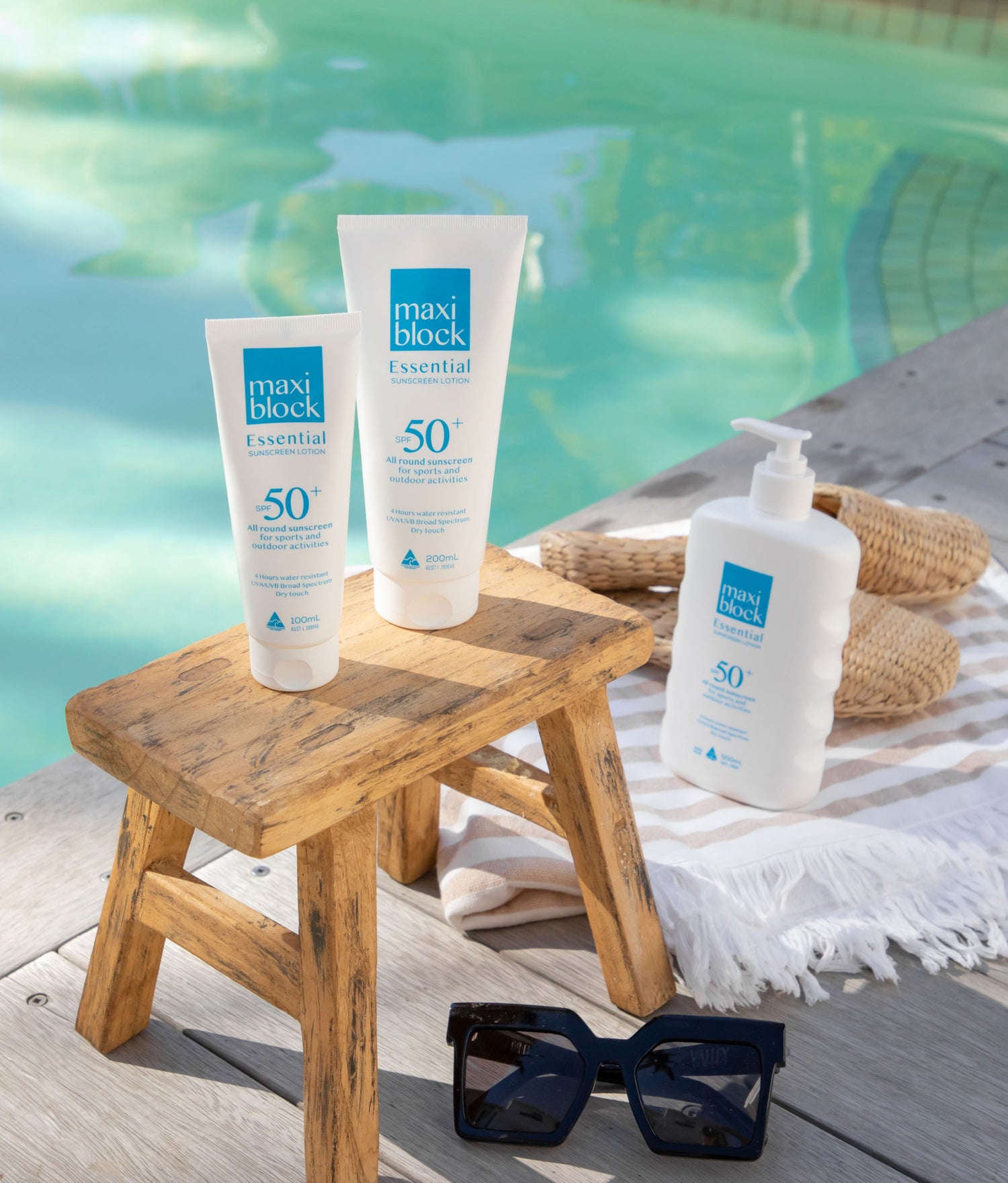
Everyday Sunscreen
Get out there with Maxiblock Essential and enjoy the freedom of the great outdoors with its 4 hour water resistant sunscreen formula, providing long lasting protection against the most harmful sun.
-
Essential Dry Touch Sunscreen SPF50+ 100mL
Regular price $11.95 AUDRegular priceUnit price / per -
Essential Dry Touch Sunscreen SPF50+ 200mL
Regular price $15.95 AUDRegular priceUnit price / per -
Essential Dry Touch Spray Sunscreen SPF50+ 250mL
Regular price $19.95 AUDRegular priceUnit price / per -
Essential Dry Touch Sunscreen SPF50+ 1L
Regular price $34.95 AUDRegular priceUnit price / per -
Essential Dry Touch Sunscreen SPF50+ 500mL
Regular price $22.95 AUDRegular priceUnit price / per$23.95 AUDSale price $22.95 AUDSale

Essential FAQs
How often should I reapply sunscreen?
Sunscreen should be applied at least 20 minutes before sun exposure to allow the active ingredients to fully bind to the skin.
Reapplication of sunscreen is just as important as putting it on in the first place, so reapply the same amount at regular intervals. Dermatologists advise reapplying sunscreen after approximately two hours.
Why should I reapply sunscreen regularly?
Even with a sunscreen that has 4 hours water resistance, you should re-apply every two hours to maximise sun protection
The Australian standard for water resistance is the most stringent standard worldwide but does not mean that you can continuously spend 4 hours having fun in the water and still be protected. It measures the SPF protection remaining after four hours spent in a jacuzzi and does not account for the sunscreen lost by sweating, towel drying, friction with water or contact with clothing or other surfaces such as chairs for example.
Sunscreen should be re-applied frequently to ‘touch-up’ the applied sunscreen and ensure it is functioning effectively at all times.
SPF 30 vs SPF 50?
Shielding against the intense Australian sun is paramount, given its high UV levels. The SPF 30 vs SPF 50 debate unfolds, highlighting the shift from the 1998 standard to the 2012 standard, where SPF50+ not only doubles protection but crucially enhances defence against UVA, responsible for aging and skin cancer.
Is sunscreen dangerous?
Broad-spectrum sunscreen sold in Australia is highly regulated by the Australia Therapeutic Goods Administration (TGA).
All ingredients used to formulate sunscreens are regulated and continuously assessed by sophisticated regulatory authorities in Europe, USA, Japan and Australia. Avoiding the use of sunscreens is not advised. UV rays from the sun is extremely dangerous and therefore not using sunscreens when needed is very dangerous and will significantly increase chances of developing skin damage, sunburn and therefore skin cancer (melanoma). Sunscreen use is one of five important ways of reducing the risk of skin cancer.
The risks of sun damage are considerably high and sunscreen only acts as partial protection again UVA and UVB radiation. Make sure to check out SunSmart's 5-step guide to sun protection.
Should you wear sunscreen even in the winter months?
Certainly, it's essential to use sunscreen daily, even during the winter months, as UV radiation remains a year-round concern.
Making a habit of applying facial sunscreen is a highly effective step in minimizing early signs of skin aging, safeguarding the skin, and potentially lowering the risk of certain skin cancers.
Sunscreen for different skin types?
Incorporating sunscreen into your skincare routine is a crucial step. Beyond shielding the skin from harmful UV rays, numerous studies indicate that sunscreen plays a role in minimizing the signs of skin aging and lowers the risk of developing skin cancer. Sun damage may have considerable consequences on your skin. Make sure to protect your skin before applying sunscreen by following SunSmart's 5-step guide to sun protection.
Dry skin: Maxiblock has a designated product Maxiblock Face. Dermatologists advise the use of a minimum SPF30 to effectively safeguard dry skin against the damaging effects of UV rays. This product is also ideal for oily skin

